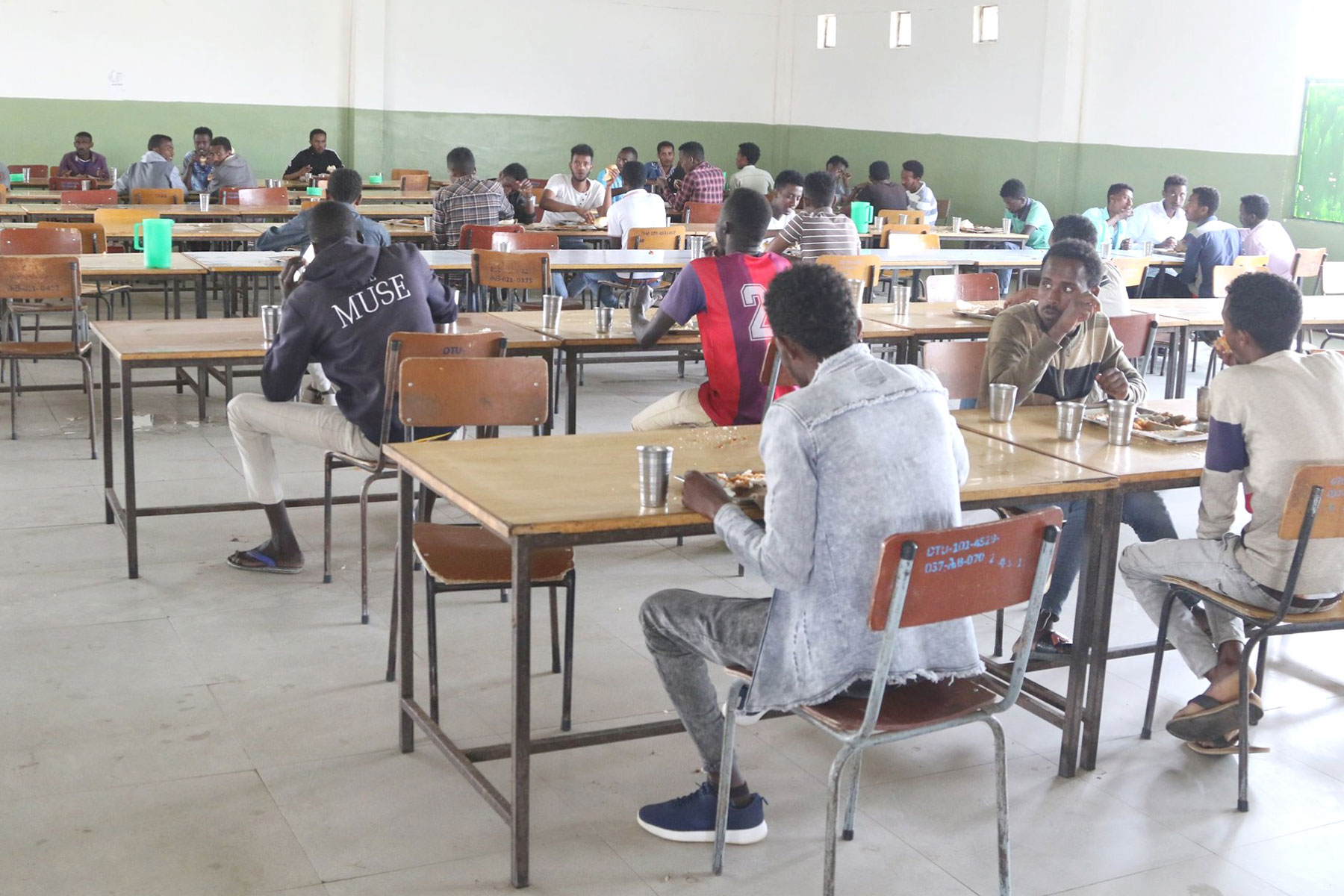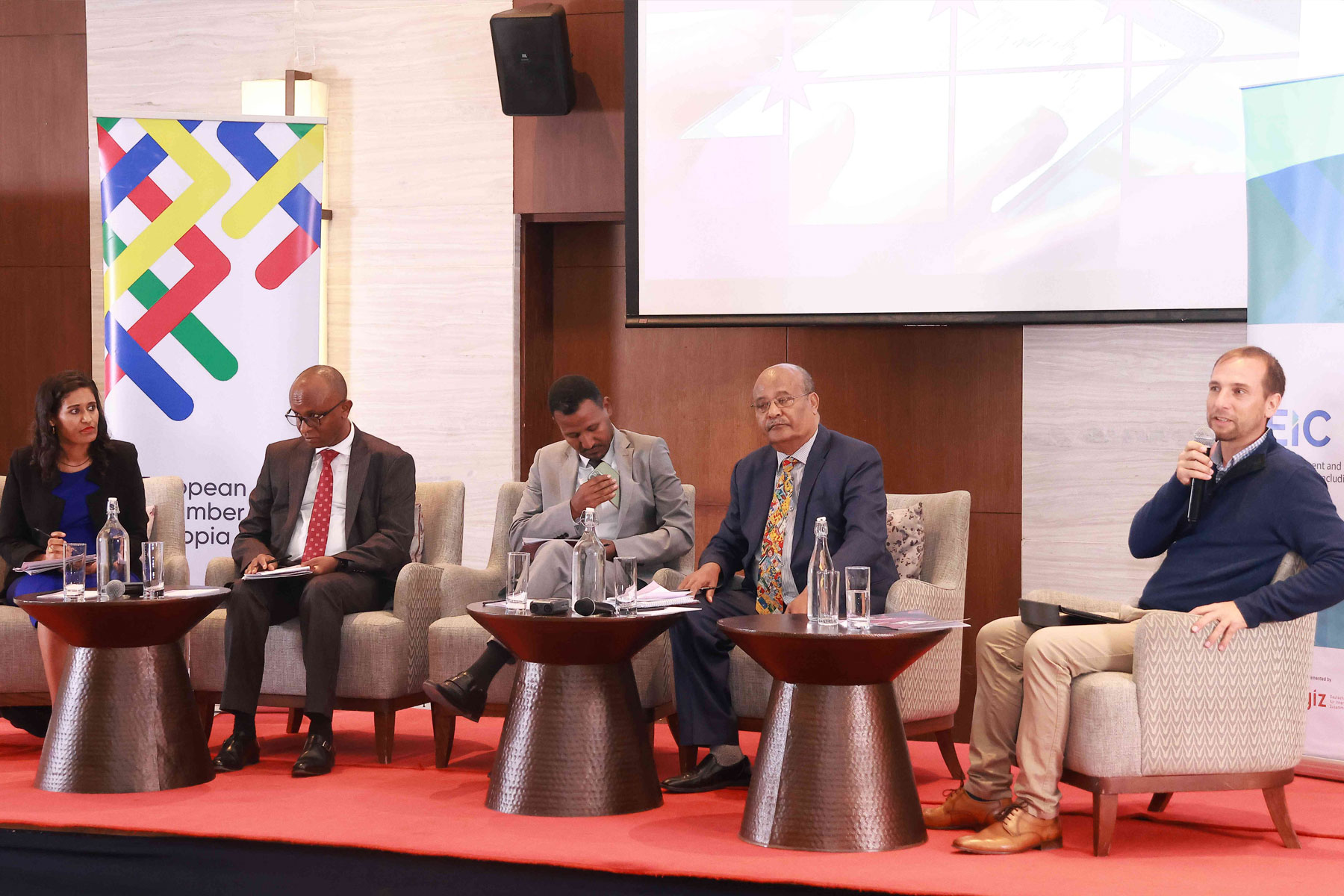
Life Matters | Jul 01,2023
Feb 25 , 2023
By Kidist Yidnekachew
One of the days last week, my two and three-year-old children were playing on the bed as if it was a plain field situated for running. Afraid they would fall off and hurt themselves, I tried everything I could think of to get them off the bed, even yelling but they did not budge. Then I ended up gently smacking them on their bottom. The little one started crying hysterically while her brother left the bedroom in disbelief and with a disappointed look on his face.
I felt bad. A few minutes later as I was holding my daughter, she said “mommy why did you hit me here?" while rubbing her lower back. I was almost in tears. Although I am not sure if it made sense to her, I told her it was because I feared she was going to fall from the bed and hurt herself if I did not stop her.
It was not the first time I did this in the name of protection, each time justified by my fear. But this was the first time my daughter asked me the reason. In this case, my worry is not with the act itself but rather with how young my kids are to receive such disciplinary measures. I believe the smacking would not hurt them more than the falling or bumping of heads.
I recall having a constant fright that my kids will get hurt and trying not to be around them when they were playing. Parents of toddlers would understand. Whenever my kids are having fun partaking in activities that could potentially harm them, I am stressed out because if I blink they might be onto something but if I watch them I am constantly yelling ‘stop', 'don’t do that', 'don’t go there', 'don't touch that’ with the words losing power each time. Even the gentle smack backfires as they tend to mimic and try to smack back thinking it is a form of play. Then I end up stopping them from playing altogether to be at peace.
The last thing I want is to keep my children from experiencing the world autonomously and yet my overprotective nature would not let me do that. I know that I cannot save them from everything and soon enough they will explore the world and face far worse threats than falling from the bed but I cannot help myself.
While doing some research, I learned that in our quest as parents, we can inadvertently do more harm than good in the name of ceaselessly watching and protecting our children to give them the best possible start in life. We allow our anxieties to affect our parenting decisions. Overprotective parenting is a common way agitation manifests. Parents who are constantly worried about their child's safety and well-being may become overbearing and controlling, limiting their child's freedom and autonomy, and derailing their maturity.
While overprotection may seem like a good way to keep children safe, it limits their opportunities to explore and take risks. It prevents children from developing important life skills such as problem-solving, decision-making, and self-reliance. Children are like sponges, they absorb everything around them.
By projecting our fears onto the children, we unintentionally perpetuate a cycle of anxiety and stress even in situations where there is no real danger. It may have lasting effects on their mental health and well-being. Instead, Parents should be observant and understand their emotions so as to bring up a child independently with a unique set of skills.
We should be models of calmness and resilience. When parents are fearful, they set unrealistic expectations that put pressure on children leaving them to always seek approval which grows into low self-esteem, anxiety and depression.
I come across useful steps to change this behaviour. The first step in overcoming fears is to recognise and acknowledge them. After identifying the sources, we then begin to work through them and find ways to manage them.
Giving children the freedom to explore and take risks is essential for their development. It is important to set realistic expectations, helping them develop a sense of self-worth and achievement.
PUBLISHED ON
Feb 25,2023 [ VOL
23 , NO
1191]


Photo Gallery | 96987 Views | May 06,2019

Photo Gallery | 89204 Views | Apr 26,2019

My Opinion | 67247 Views | Aug 14,2021

Commentaries | 65787 Views | Oct 02,2021

Feb 24 , 2024 . By MUNIR SHEMSU
Abel Yeshitila, a real estate developer with a 12-year track record, finds himself unable to sell homes in his latest venture. Despite slash...

Feb 10 , 2024 . By MUNIR SHEMSU
In his last week's address to Parliament, Prime Minister Abiy Ahmed (PhD) painted a picture of an economy...

Jan 7 , 2024
In the realm of international finance and diplomacy, few cities hold the distinction that Addis Abeba doe...

Sep 30 , 2023 . By AKSAH ITALO
On a chilly morning outside Ke'Geberew Market, Yeshi Chane, a 35-year-old mother cradling her seven-month-old baby, stands amidst the throng...

Apr 27 , 2024
The Prosperity Party (PP) - Prosperitians - is charting a course through treacherous...

Apr 20 , 2024
In a departure from its traditionally opaque practices, the National Bank of Ethiopia...

Apr 13 , 2024
In the hushed corridors of the legislative house on Lorenzo Te'azaz Road (Arat Kilo)...

Apr 6 , 2024
In a rather unsettling turn of events, the state-owned Commercial Bank of Ethiopia (C...

Apr 28 , 2024
A dire situation unfolds across public universities, where students face the harsh re...

Apr 28 , 2024 . By MUNIR SHEMSU
A European business lobby in Ethiopia issued a scathing review of the tax system last...

Apr 28 , 2024
The Federal Supreme Court has recently ruled in the prolonged commercial dispute surr...

Apr 28 , 2024 . By MUNIR SHEMSU
Transport authorities placed blame on driving schools and vehicle inspection centres...